Political Ecology & Agrarian Questions
This page provides a brief synopsis of my research in the field of political ecology and critical agrarian studies. I propose to rethink political ecology in order to analyse the full breath of agriculture as a modern, industrializing productive activity. Any alternative agricultural model will have to be considered in relation to the dynamics of contemporary agriculture.
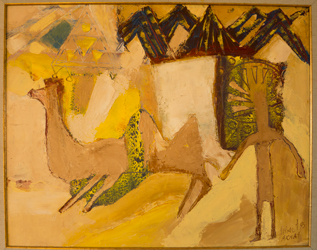
Why Political Ecology?
Political ecology connects social and natural sciences, dovetails with critical development studies and incorporates major ideas from agrarian political economy. I see ‘development’ as a notion concerned with global and local inequity as resulting from political processes. The political ecology approach has produced an exciting number of detailed studies of society-nature interactions. It also is an interesting contribution to the study of transformations in agricultural technology and natural resources use. It explores interactions between local situations and wider economic and political processes in which power influences the (uneven) distribution of resources and shapes development discourses and institutions.
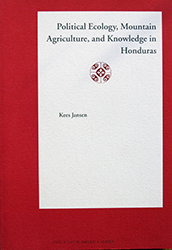
Political Ecology rooted in Agrarian Questions
In my PhD research in the 1990s, I examined the interlinkages between political ecology and critical agrarian studies. Key concepts from agrarian political economy helped me to understand interactions between environmental degradation, shifts in land use and changes in social relationships in Honduras. The writing of Political Ecology, Mountain Agriculture, and Knowledge in Honduras strengthened my idea that political ecology needs to remain strongly rooted in a theory of agrarian political economy. This means, for example, that the study of environmental narratives cannot be uncoupled from its material and political economy dimensions. We have green agrarian questions.
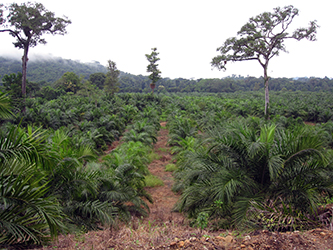
Environmental versus agrarian demands: narratives and production practices
Some of these ideas were followed up in the thesis work of Antonio Castellanos-Navarrete and in several co-authored papers on the expansion of oil palm in Mesoamerica (Mexico and Guatemala). This work addresses questions about the politics and impact of farmer-based oil palm expansion in Chiapas, Mexico and Guatemala. Antonio’s dissertation is particularly interesting where it combines detailed studies of land use changes, the history of local politics, and different, contesting narratives about oil palm and the environment. We are finalizing some publications that will explore the challenges for agro-ecology, the misuse of the concept of enclosure, the discourse of certification, and the limited understanding of the politics of farmers’ actions.
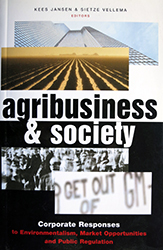
Political Ecology involves the study of large business
Another concern is the emphasis on alternative solutions in many recent critical approaches. Without denying the importance of such alternatives (e.g. smallholder organic agriculture or community managed resources), it is my perspective that there is a relative lack of studies of contemporary mainstream agriculture in agrarian political economy and political ecology. From this premise I developed with Sietze Vellema a book project on agribusiness and how it dealt with environmentalism in the early 2000s. Agribusiness and Society: Corporate Responses to Environmentalism, Market Opportunities and Public Regulation (Zed Press, 2004) takes up a series of issues that are highly actual today, such as corporate social responsibility standards, the promotion of genetically modified organisms, global justice for environmental damages, the corporatization of organic agriculture, and how to regain control over public-private partnerships. This project underlines the importance of a detailed understanding of the complex working of businesses in order to replace one-sided structuralist accounts based on simple assumptions about how business will behave.

Interdisciplinarity and Technography
Interest in nature/technology – society interaction inevitably leads to the question of interdisciplinarity. I propose a shift in conceptualizing ‘interdisciplinarity’: from perceiving it as a relatively simple epistemological question (to be solved through better communication and interaction) to an ontological question about what is emergence. The focus is on interdisciplinary research combining natural/technical and social sciences. It explores the potential of critical realism as an underlying theory to reveal underlying structures, mechanisms, and conditions as well as contingencies which make events happen. This research takes as starting point a critique of dominant applications of systems theory and its soft opposites in the agricultural sciences (see my publication in Sociologia Ruralis).
To support this line of thinking I have worked with Sietze Vellema on a methodology of integrative research that combines natural and social sciences in the study of complex development problems and agrarian change; see our publication on ‘Technography’. Technography is a historical and contextual methodology to collect data on complex interactions between social groups, collective representations, technical artefacts, and nature. It aims to unravel interactions between the material, the artefactual, social interaction, and social structure.
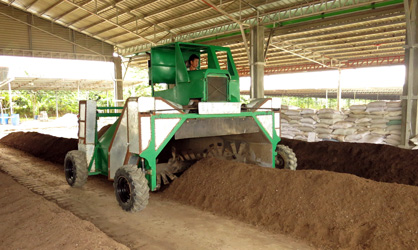
Technology and Knowledge as Agrarian Questions
Sociological approaches to agrarian change have paid scant attention to technology and technical knowledge, afraid to be seen as technological determinist. I am interested in integrating technology and knowledge in critical agrarian studies. Science, Technology and Society (STS) studies have produced crucial insights that are relevant for my work, but in my view the study of technology and society should put the political economy more central relative to science. Similarly, knowledge cannot be seen as just an outcome of science, nor viewed from a science-lay knowledge dualism. Conceptually, we should not collapse the material (nature or artefacts/second nature/technology) and the social as some STS approaches in fact propose. In the context of development studies, technological improvement will maintain its ambiguous relationship with politics and politicization (see my publications with Diana Córdoba, André Novo and Kazbek Toleubayev).
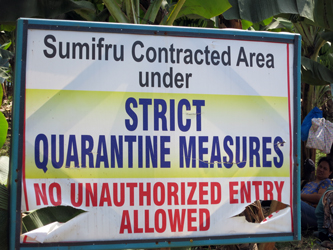
Political Ecology and Risk
Upon accepting the premise that political ecology is about a modernizing agricultural production and its long-term reproduction, (hence, a political ecology that is not simply conservationist), important questions can be raised about risk. Working with political ecology has influenced my research on ‘Pesticides and plant disease governance’ in which I try to combine political ecology with different social theories of risk.
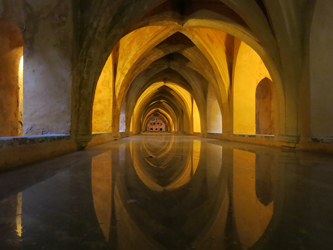
Future work
I am currently thinking about several issues:
- Political ecology and agro-ecology: similarities, differences, linkages, contradictions
- How to combine political ecology with social theories of risk?
- How to make the political ecology approach more sensitive towards the complexity and heterogeneity of business politics and modern agriculture?
- How to understand materialism in a political ecology perspective?
- continue to research on Pesticide Risk and Plant Disease Governance
- or continue to Thesis Supervision and Teaching
- or go to Publications